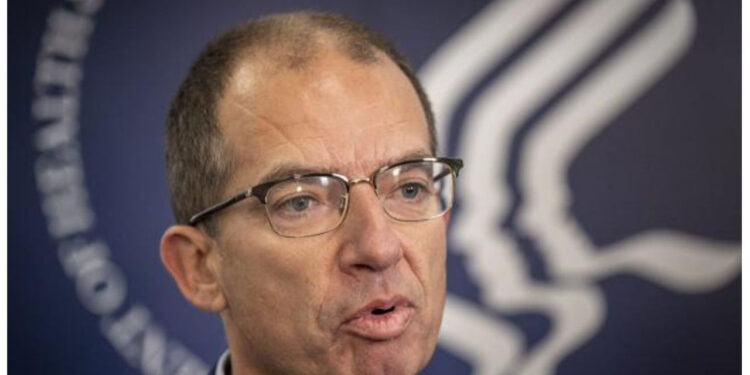On September 20, 2023, Moderna CEO Stéphane Bancel attended an event in Washington, DC, to encourage people to get updated COVID-19 booster doses.
Most of the pandemic’s bad days have passed, and Moderna’s earnings, which are based on sales of their COVID-19 vaccine, seem to reflect this.
Moderna’s single product on the market, the COVID-19 vaccine Spikevax, generated $167 million in revenue. The company’s first-quarter sales were 91% lower than the same time last year, when they generated $1.9 billion.
The falling revenue seems reasonable, given that demand for vaccination has been declining since 2021, but it’s not all bad news for the vaccine manufacturer. Its revenue exceeded Wall Street’s projection of $97.5 million, and Moderna’s stock rose 7% on Thursday. According to OpenAI’s press release, the company unveiled a new invention around the end of April to integrate AI and ChatGPT into its operations as part of an ongoing partnership with OpenAI since 2023, and expects to release a new RSV vaccine this fall.
Moderna’s first-quarter net loss of $1.18 billion exceeded Wall Street projections of $1.4 billion, and the business now expects full-year sales of $4 billion.
The Massachusetts-based biopharmaceutical company said in its first-quarter earnings report that its sales decline “aligns with the anticipated transition to a seasonal COVID-19 vaccine market,” making the market for the vaccine similar to that of the flu shot, and that “delivered doses deferred from 2022” primarily bolstered revenue sales in 2023.
It’s worth noting that the vaccine maker, which employs approximately 5,100 people as of June 2023 and was founded in 2010, is in a very different category than some other pharmaceutical giants that made bank during the pandemic, such as Pfizer, which was founded in 1849 and reported first-quarter sales of $14.88 billion, or Johnson & Johnson, which was founded in 1886 and reported $21.4 billion in first-quarter revenue.
The fact that Americans have been receiving booster immunizations less frequently in recent years is the reason for Moderna’s low sales. According to the Centers for Disease Control and Prevention, as of April 30th, slightly over 22% of American adults had received an updated COVID-19 vaccine since mid-September. Furthermore, approximately 28% of adults report receiving the most recent vaccine, according to a Pew Research Center report, which also found that, despite a public-health push encouraging adults to get both the flu and the COVID-19 vaccines at the same time, nearly half of those who received a flu shot from a health care provider chose not to receive the updated COVID-19 vaccine.
Moderna’s next priority is to continue rolling out mRNA vaccines, which use live bacterium or viral molecules rather than weakened or dead virus material; up next will be the aforementioned RSV vaccine and a seasonal flu vaccine. According to the earnings report, the company’s RSV vaccine has entered the third of five clinical research phases required by the Food and Drug Administration for new medications, and it expects initial regulatory approvals for the vaccine in the first half of this year, with a fall 2024 launch date, just in time for cold and flu season.
According to an OpenAI release, Moderna intends to deploy AI across its business and bring 15 new products to market in the next five years. These goods might range from RSV vaccines to personalized cancer therapies, diversifying the company’s future revenue.
“This is the start of a banner year for our vaccine platform as we continue to advance mRNA medicines for patients,” Moderna CEO Stéphane Bancel stated on the conference call. “This is just the beginning.”










